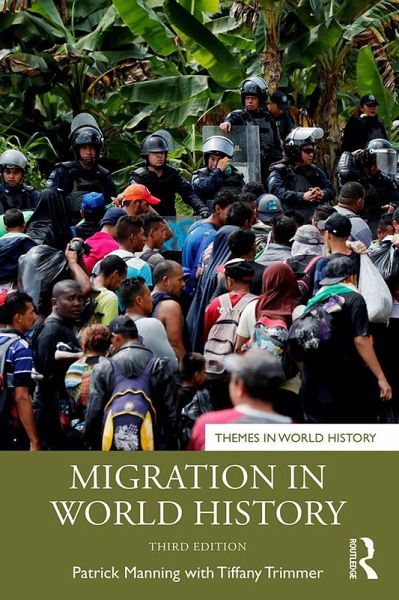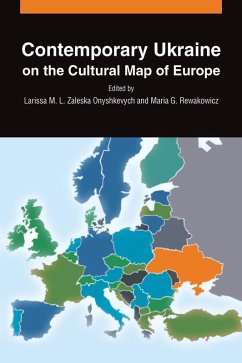
Migration in World History (eBook, ePUB)

PAYBACK Punkte
19 °P sammeln!
In this third edition of Migration in World History, Patrick Manning presents an expanded and newly coherent view of migratory processes, conveying new research and interpretation. The engaging narrative shows the continuity of migratory processes from the time of foragers who settled the earth to farmers opening new fields and merchants linking purchasers everywhere. In the last thousand years, accumulation of wealth brought capitalism, industry, and the travels of free and slave migrants. In a contest of civilizational hierarchy and movements of emancipation, nations arose to replace empires...
In this third edition of Migration in World History, Patrick Manning presents an expanded and newly coherent view of migratory processes, conveying new research and interpretation. The engaging narrative shows the continuity of migratory processes from the time of foragers who settled the earth to farmers opening new fields and merchants linking purchasers everywhere. In the last thousand years, accumulation of wealth brought capitalism, industry, and the travels of free and slave migrants. In a contest of civilizational hierarchy and movements of emancipation, nations arose to replace empires, although conflicts within nations expelled refugees. The future of migration is now a serious concern.
The new edition includes:
While migration is often stressful, it contributes to diversity, exchanges, new perspectives, and innovations. This comprehensive and up-to-date view of migration will stimulate readers with interests in many fields.
The new edition includes:
- An introduction to the migration theories that explain the shifting patterns of migration in early and recent times
- Quantification of changes in migration, including international migration, domestic urbanization, and growing refugee movements
- A new chapter tracing twenty-first-century migration and population from 2000 to 2050, showing how migrants escaping climate change will steadily outnumber refugees from other social conflicts
While migration is often stressful, it contributes to diversity, exchanges, new perspectives, and innovations. This comprehensive and up-to-date view of migration will stimulate readers with interests in many fields.
Dieser Download kann aus rechtlichen Gründen nur mit Rechnungsadresse in A, B, BG, CY, CZ, D, DK, EW, E, FIN, F, GR, HR, H, IRL, I, LT, L, LR, M, NL, PL, P, R, S, SLO, SK ausgeliefert werden.













